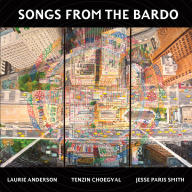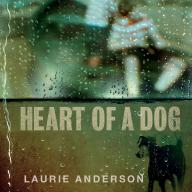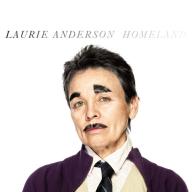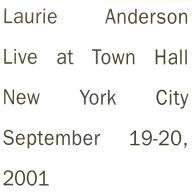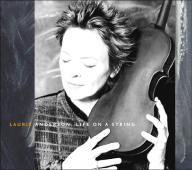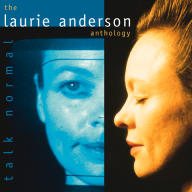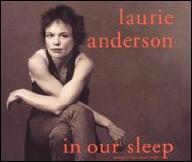Born in the Chicago suburb of Glen Ellyn, Illinois on June 5, 1947, she studied violin as a teen; relocating to New York City at age 20. She later attended Barnard College, graduating with a B.A. in art history in 1969. After earning an M.F.A. in sculpture from Columbia University in 1972, Anderson taught art history and Egyptian architecture at City College. She mounted her first public performances a year later.
By 1976, Anderson was regularly performing in museums, concert halls, and art festivals throughout North America and Europe; claiming to base all of her projects on the power of words and language, her work also emphasized visual imagery and cutting-edge technology, with pieces like 1980's "Born, Never Asked" written for both orchestra and electronics. A year later, Anderson recorded "O Superman" for the tiny New York label 110 Records. An 11-minute single built around electronic drones and featuring opaque lyrics half-spoken and half-sung (in a voice sometimes electronically treated), this most unlikely song became a smash in Britain, where it reached the number two spot on the national pop charts. Warner Bros. soon signed Anderson to record a full-length LP, and in 1982 she issued Big Science, a work drawn from a much larger project, the seven-hour multimedia performance United States.
With 1984's Mister Heartbreak, Anderson produced her most overtly pop-oriented work, teaming with artists including Peter Gabriel and Adrian Belew; the end result even reached the American Top 100. That same year, she also issued United States Live, a recorded document of the complete performance spread across a five-LP set. Anderson's next project, Home of the Brave, was a concert film; a year later she also scored the Jonathan Demme/Spalding Gray film Swimming to Cambodia. A proper studio album, Strange Angels, did not follow until 1989. The next several years were devoted to performance tours, including 1990's Empty Places, 1991's Voices from the Beyond, and 1993's Stories from the Nerve Bible. In 1994, Anderson teamed with producer Brian Eno for Bright Red, also featuring her then-boyfriend Lou Reed (they would marry in 2008). The following year she released the LP The Ugly One with Jewels and Puppet Motel, a CD-R confirming her ongoing interest in the latest technology.
In 2001, Anderson issued Life on a String, which contained songs from her large musical theater pieces Moby Dick and Strange Angels. Also in 2001, just over a week after the attacks on the World Trade Center, she recorded a live album at Town Hall in New York City (on its cover were the poignant words "New York City, September 19-20, 2001"). It was released as Live at Town Hall NYC in 2002. Anderson continued her appearance schedule but didn't record for another seven years, when she began working on Homeland, which was released by Nonesuch in 2010. She continued to work on multiple projects, though she took time off from her work to care for her husband Reed when he fell ill in 2012. After Reed's death in October 2013, Anderson returned to work on her second feature film, Heart of a Dog, a meditation on love, loyalty, and loss, seen through the filter of the death of her dog Lolabelle. The film and its soundtrack album were both released in October 2015. Back in 2013, Anderson had teamed up with the Kronos Quartet on a project called Landfall, inspired by her experiences with Hurricane Sandy. It premiered at the University of Maryland that year and was later performed around the world. Five years later, a recorded version, developed from those performances, was released by Nonesuch.
In 2019, Anderson teamed with Jesse Paris Smith and Tibetan musician Tenzin Choegyal for the album Songs from the Bardo, an 80-minute improvisatory composition based on the Tibetan Book of the Dead. Smith and Choegyal met at the 2014 Tibet House benefit where they initially discussed the creation of the work. A year later, a shortened version was performed with Anderson at the annual event. The recording featured Choegyal, Smith, cellist Rubin Kodheli, and percussionist Shahzad Ismaily, who offered musical accompaniment to Anderson's narration of the primary text. Songs from the Bardo was released in 2019. ~ Jason Ankeny, Rovi


